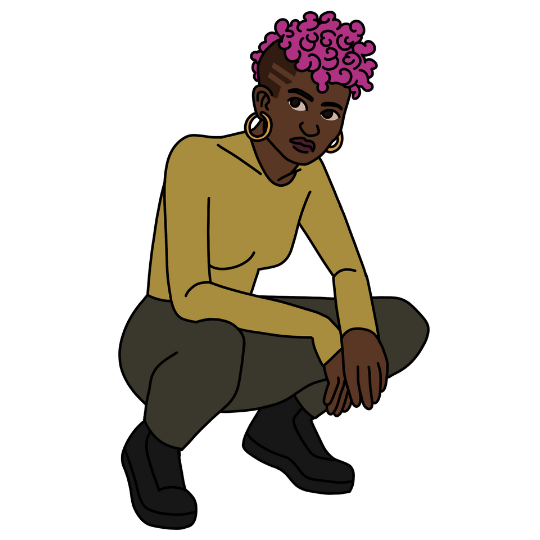Conquering Imposter Syndrome and Embracing My Identity as a Black Game Developer
Posted: 23 Jan 2023Part of my childhood in the 90s involved going to the computer store with my Dad and picking out PC games on floppy disks.
Back then, when YouTube didn’t exist, when there were no trailers or gameplay videos to watch, the way some of us would learn about new games would be through a preview of another game. If it looked fun, you would hunt it down.

Other times it was random. You hoped the game was fun because of the title. One of the games that my Dad brought home one day was a game called Myst. The title and cover art caught my attention, but I had no idea what it was truly about.
I remember inserting the CD-ROM into our computer and being immediately captivated by the stunning graphics and mysterious atmosphere. It was a puzzle-adventure game, where the player is stranded on an island and must solve various puzzles in order to progress and uncover the secrets of the island.
Playing Myst was an experience unlike any other I had before. The game was challenging and required a lot of critical thinking, but it never felt impossible. Solving each puzzle brought a sense of accomplishment and made me eager to find out what the next one would be.
Myst was a game that I spent countless hours on, and it left a lasting impact on me. It was one of the first games that sparked my love for the adventure and puzzle genre and it holds a special place in my childhood memories.
It was a reminder of the thrill and excitement of discovering new games, and the joy of experiencing something new and different. As I grew up, I slowly drifted away from playing games to ultimately focusing my attention on my work as a software developer.
My journey to where I am today was not and is still not easy. I’ve worked in the tech industry for nearly a decade. As a Black woman in the male-dominated world of tech, I’ve had moments where I’ve struggled with imposter syndrome and a lack of belonging.

But ultimately, I didn’t allow these thoughts to hold me back. I persevered and worked hard to build my skills and knowledge. I sought out mentors and support from my community, and I learned to embrace my identity as more of an opportunity than a setback. After spending several years working in the tech industry and honing my programming skills, I began to feel unfulfilled and stagnant in my career.
I began to explore the concept of Ikigai, a Japanese principle of finding one’s purpose in life by identifying the intersection of what one loves, what one is good at, what the world needs, and what one can be paid for. Through this process, I realized that my true passion was in using my programming skills to bring stories and ideas to life. This realization led me to pursue indie game development, where I could combine my technical skills and creative passions to create meaningful and engaging games.
When I first decided to transition into game development, I had many initial doubts. I was concerned that my lack of experience in the field would hold me back and that I would not be able to progress. I also worried about being a woman of colour in an industry that is not known for its diversity. I questioned my skills and wondered if I was truly cut out for it. However, I knew that I had a passion for it and decided to push through these fears and doubts, and give it a try.

I am currently pursuing a master’s degree in Creative Business at the National Film and Television school, which has been instrumental in my journey. Additionally, being a member of BAFTA Connect and a Women in Games Ambassador has provided me with valuable connections and support, which has helped to alleviate feelings of imposter syndrome and open doors for professional opportunities.
As I progress on my journey, I realize that my unique background brings a fresh perspective to the industry and that my experiences as a woman of colour are an asset.
My journey has taught me that it is important to pursue your passion and never give up on your dreams, even when facing challenges. It also taught me that representation matters, and that it’s important to use your voice and platform to speak out about the importance of diversity and inclusivity in any industry.
I encourage anyone facing similar challenges to pursue their dreams and never give up on their passion. Seek help when needed, and embrace your identity and unique perspective, it is an asset to the industry as a whole.

Theresa Johnson is a Game Dev, Women In Games Ambassador, member of BAFTA Connect and is currently pursuing a master’s degree in Creative Business at the National Film and TV school.

